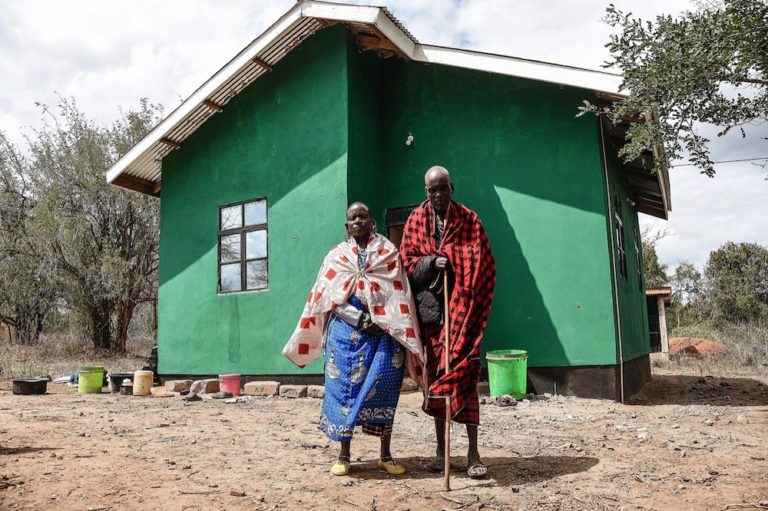(WAN/IFEX) – The following is an excerpt from the 31 July 2008 RAP 21 Newsletter: Attacks Continue Against Radical Newspaper in Tanzania For more than a year the radical weekly “MwanaHALISI” has been subject to government harassment and violence, belying the country’s reputation for having liberal press policies compared to its neighbouring African countries. Over […]
(WAN/IFEX) – The following is an excerpt from the 31 July 2008 RAP 21 Newsletter:
Attacks Continue Against Radical Newspaper in Tanzania
For more than a year the radical weekly “MwanaHALISI” has been subject to government harassment and violence, belying the country’s reputation for having liberal press policies compared to its neighbouring African countries. Over the past five years, the Tanzanian media has welcomed the creation of the Editors Forum, the Media Council of Tanzania and five new papers to the media scene. “MwanaHALISI” is the anomaly to this picture.
The newspaper, which was launched in May 2006, has had impressive success with its legendary investigative journalism. In just over two years the circulation has grown from 7,000 to 60,000 copies per week. “It is the leading paper in the country in the fight against high level corruption,” said editor Jabir Idrissa to RAP 21.
With the paper’s credo, “fight graft and agitate for good governance and rule of law,” not all spheres of influence in Tanzania are thrilled. Idrissa said to RAP 21, “those who are responsible in pilfering public funds see us as the number one enemy.”
Idrissa told RAP 21 that after the paper published the opposition camp’s “List of Shame,” which revealed senior government officials and traders as thieves of the country’s economy, the government has been targeting them.
“Harassment has been the order of the day. In fact, from mid last year, we have received several letters from the information department asking us to explain why we published a certain story or feature. They even threatened to ban the paper if we continued to write what they claimed to be seditious stories against the President and the state.”
In January, two men threw acid on company director and managing editor Saeed Kubenea and professional advisor Ndimara Tegambwage and beat them with iron bars. Kubenea sought medical treatment in India at the government’s expense; Tegambwage received 15 stiches.
More recently, on 18 July, four uniformed police officers raided the “MwanaHALISI” newsroom after the National Bank of Commerce complained about articles that included bank data of some of their clients. With a warrant in hand, the police officers confiscated a computer and questioned Kubenea, who is still recovering from the previous attack. After, the police moved to Kubenea’s house where another search was carried out.
“This police intrusion into the offices of an independent newspaper is disturbing and surprising in a country where the press normally enjoys real freedom,” said Reporters Without Borders (RSF).
On 28 July, Information Minister George Mkuchika made a statement regarding the police raid on “MwanaHALISI”. In sum, Mkuchika belittled the raid. In his statement, Mkuchika said: “The police have legal powers to search anybody when they believe they have justification. Anybody, not only journalists and newsrooms, but even members of parliament can be searched by the police.”
Furthermore, even if nothing is found the police do not have to justify the search, according to Mkuchika. He continued to say, “In a normal constituency people always fall into police hands and are searched. [In this case] it is just because the search concerned journalists and their colleagues publicized the incident but it is nothing new.”
While the January attack continues to be investigated (two suspects were arrested) and little progress has been made to bring answers to last week’s raid, Mkuchika has been boasting of the government’s apparent support for the independent media since his appointment less than one year ago. “The government has not banned any newspaper or radio or television station,” said Mkuchika. Rather, the government has deployed violent tactics in an effort to place limitations on published content.
The staff at “MwanaHALISI” is standing unbowed to the police: “Normalcy has returned and we are in preparation for the second issue since the search,” Idrissa concluded.
The African Press Network for the 21st Century (RAP 21), a pan-African media network, was launched by the World Association of Newspapers (WAN) together with the Union of Publishers in Central Africa (UEPAC).
Updates alerts on prior attacks and harassment of “MwanaHALISI”:
http://ifex.org/en/content/view/full/95571
http://ifex.org/en/content/view/full/89404


